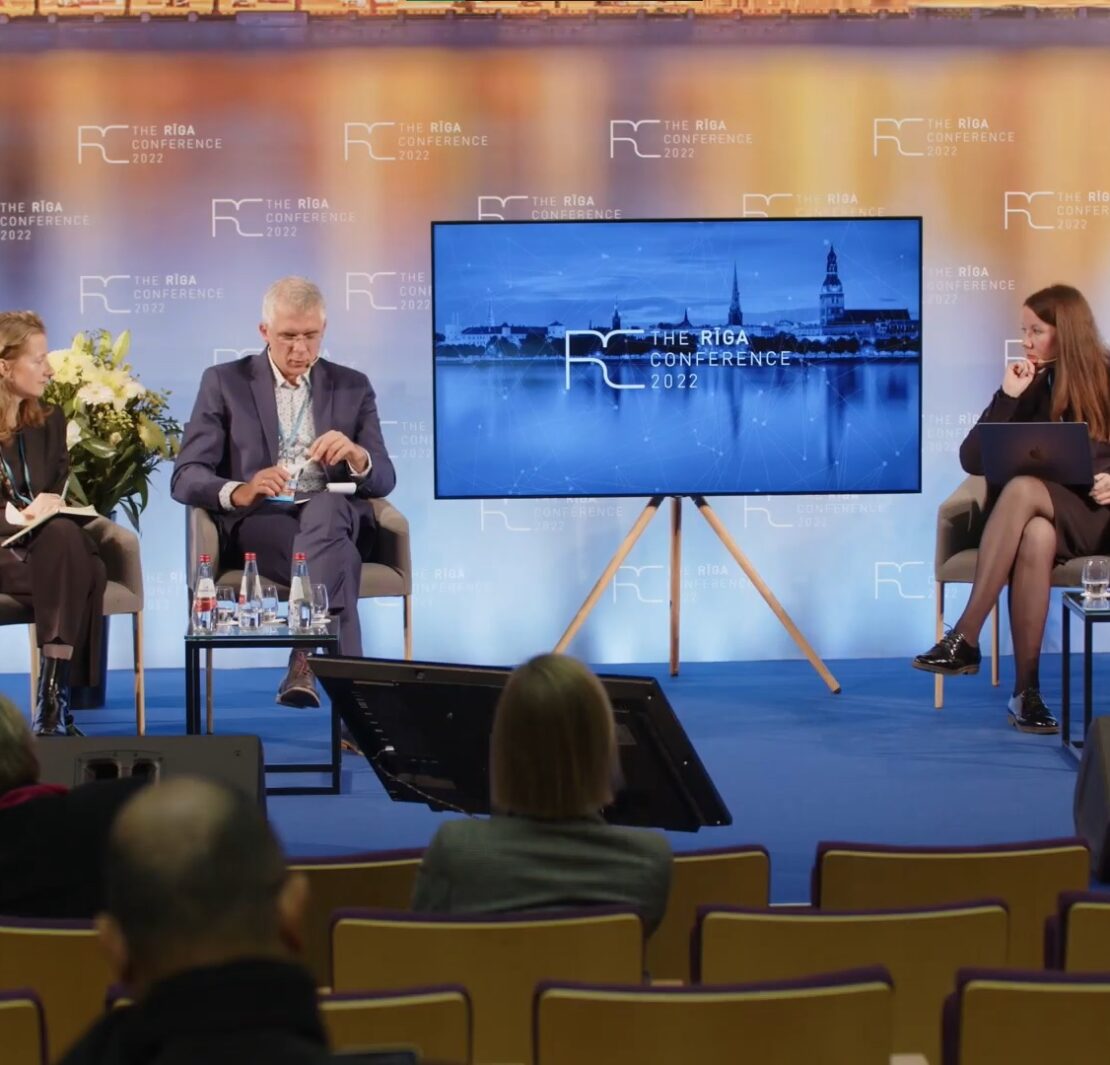Hybrid threats are an increasingly widespread attack utilized by some states to attack their opponents without entering into an open full-scale conflict with them. The Baltic States share a border with Russia and Belarus, two frequent users of hybrid attacks, making them some of the most experienced in the world when it comes to dealing with hybrid threats. With the war in Ukraine souring Europe’s relations with Russia, it is likely many more countries will face hybrid threats attempting to undermine their national security. Therefore, it is of utmost importance to understand what exactly hybrid threats are, as well as how to prevent and combat them.
In this discussion, panelists Dr Ainius Lašas (Dean of The Faculty of Social Sciences, Arts and Humanities at the Kaunas University of Technology), Elīna Lange-lonatamišvili (Senior Expert, NATO StratCom COE), James Appathurai (Deputy Assistant Secretary General for Emerging Security Challenges at NATO) and Viktorija Rusinaite, Senior Analyst at the European Centre of Excellence for Countering Hybrid Threats, discuss:
-Is there a common understanding of what hybrid threats are?
-Raising holistic situational awareness -Disinformation; cybersecurity & imposing costs
-Deterrence by denial: raising resilience and preparedness
-Countermeasures – “Hybrid deterrence”?
-Is it best to face hybrid threats as nation-states, or cooperate internationally?
Moderator: Fredrik Löjdquist, Director of the Stockholm Centre for Eastern European Studies
00:00 Introducing the topic & panelists
1:20 The 5 questions to be discussed
2:43 Opening reflections of Elīna Lange-lonatamišvili
8:50 Comments from Dr Ainius Lašas
16:20 Comments from Viktorija Rusinaite
24:00 James Appathurai’s perspective
33:00 Are we forgetting about hybrid threats due to the increased focus on conventional threats?
40:25 Audience questions begin
44:58 #1 Why is there a disconnect between the panelists’ emphasis on multilateral cooperation while official documents still emphasize dealing with hybrid threats on a national level? Why have the EU and NATO walked away from the “hybrid warfare” term?
48:00 #2 Does hybrid warfare come before conventional war or is it a part of it? The war in Ukraine in 2014 vs 2022: what does it tell us about the nature of hybrid warfare?
49:30 #3 Are there any specific practices & lessons learned from the Baltic States’ experience?
50:00 Question #2 continued
51:55 Question #3 continued
53:00 Question #2 continued

